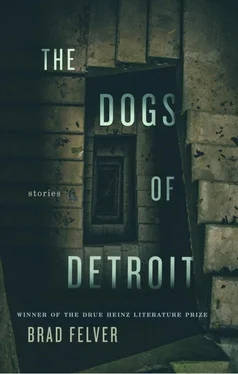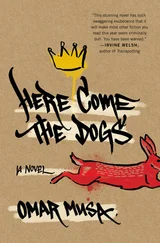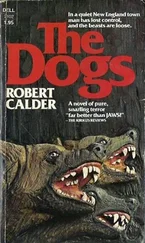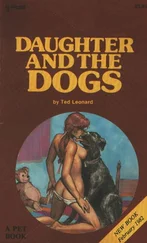You see? the uncle says. There are worse things out there than me.
He is dead the next day, and they bury him beside the mother. Helen clasps Wiley’s thick forearm as they look down at the mounded dirt. Wiley has made no marker for it and has no plans to add one. There are enough remnants of the uncle around them.
Wiley thinks about how they might build another room for the house, another bedroom. Scour the porch clean of mule, wall it in. Buy another cot, a nightstand, an oil lamp. They will sleep in separate rooms and work their hardened farm as they must, behave as they must. How then he might venture out with all their savings, leverage the old Hudson, the farm itself. Yes, sir , he’ll say, head bent. The older one there. The ’18 Fordson, sir. No, sir, I understand. I’ll work the bearings back into shape, sir . Wiley will return home with their tractor one morning, riding high atop it like a conqueror. He will call out to his sister so she might see his arrival, see as he pulls into the lane, circles a lap around the house, and parks it next to the sorghum press.
When my father died, my mother didn’t hide her annoyance. “In February?” she said, looking out the back window to the snow-covered plot our family had used for more than a hundred years. “Christ.”
“The Garchers have that backhoe,” I reminded her. “No one’s expecting you to go out there with a spade.”
“Which they’ll charge us to rent.”
She was right about that. The Garchers were our nearest neighbor, four hundred yards to the east. They ran almost six hundred acres, which counted as rich for the area. They made a big show out of eating at the new Applebee’s in town. I’d gone to school with Charlie Garcher, a toady, stupid boy who became a toady, stupid man. When I went off to college, he stayed home. When I came back to be a history teacher and help my father run the farm, I returned to student loans and the same flood-prone tract as when I’d left, but Charlie had inherited another four hundred acres and had no loans. It’s hard not to resent the fools who succeed because they have no ambition.
“We flat don’t have money for a funeral,” my mother said.
“We’ll figure something out.”
“People always say that when they don’t know how to figure it out.”
I could see she needed to wallow for a while. Despair scabs over grief when we need it to. My mother and father had the kind of marriage where they loved each other, yes, but every year it seemed less relevant. They had a farm to run and bills to pay. Who had time to be in love?
My mother disappeared into the kitchen to cook something we didn’t need, and I dialed Charlie Garcher. “Dad died last night,” I said.
“Sorry to hear that. Need the backhoe?”
“If it’s not too much trouble. Tomorrow probably.”
“It’s no trouble. Same as usual?” he asked, meaning the rate.
“It’s fine, Charlie,” I said and hung up.
After that I called my principal, Hal Owens. Hal was a good enough guy. We used to fish crappie together before he became principal. He was from Massachusetts, but he’d been in Ohio for almost twenty years, so people were starting to warm to him. “Don’t tell anyone,” I said. “I don’t want a million phone calls right now.”
“Sure, of course,” Hal said. “Take a few days. Let them read about it in the paper.” He was probably relieved at the thought of me taking a little time off. The week before, one of my American Government students, Cassidey Duluth, barged into the teacher’s lounge looking for me, calling me by my first name, Ralph, claiming we had some sort of appointment which we didn’t have. Another teacher complained, and word reached Hal. The suggestion of impropriety was strong enough to trigger an investigation, probably because Cassidey was pretty, and pretty people conjure the image of sex just by being present. I found it all very confusing. I hadn’t had much more than a whiff of sex in years, not since a short marriage and a long divorce, but if you keep your eyes open in these parts, you can see a storm coming from a long way off.
After I hung up, it occurred to me that my father was still in bed, which is where he died. My mother had found him, stiff and cold, that morning. (She would later admit after a few drinks at the wake that she had suspected he was dead in the middle of the night since he wasn’t snoring. Did you actually fall back to sleep? I asked her. I dozed , she said.) I went out to the barn and unfolded a couple of sawhorses and set an old piece of ply on top. There was a big oil stain on one side, so I flipped it over to the other side, which had a smaller oil stain. Then I went in and pulled my father out of bed and hauled him out to the barn. Rigor mortis had already set in, which made him feel stiff and breakable. I grabbed him up under the armpits and tried to lift him all the way but couldn’t. I didn’t want to drag him, but that’s what I ended up doing, his feet cutting these creases in the snow of the barnyard, which I would stomp over on my way back to the house, hoping my mother wouldn’t have to see them. I set him on the piece of ply and shut the barn door. It would stay cold enough for a day.
I went back inside and sat down at the desk with a mug of rye to write his obituary. This was Friday, and the paper ran on Saturday mornings, which meant we could do the funeral and wake Saturday evening.
What did I want to say about my father? He was a tough old bird , I wrote at first and then scratched it out because it was stupid cliché. You don’t call your father a tough old bird to a town full of tough old birds. I realized that about home the first week I went away to college and was surrounded by suburbanites who thought hay and straw were the same thing and that grocery stores made all their own food on site. I wrote about how he served honorably in the Pacific. Killed himself many Japs , I wrote, and then scratched that out too because I thought it was funny in an ironic sort of way that most people would think was serious and patriotic. Loving father and husband, a man who worked the good earth his whole life . Truth is, the life of a farmer is all about repetition. You’re tethered to the calendar, and you end up in this orbit, and before you know it fifty years have gone by and all that’s different is that your barn now has aluminum siding. I wrote down a few more platitudes and gave the information about the wake and the funeral and decided I needed to stop because it was just too sad how I could hardly hit fifty words for a man who’d lived to eighty.
Things would change now, and it wasn’t clear how we’d cover bills. Probably we’d have to lease the land out to Charlie Garcher for nickels on what it was worth, which would allow us to sell off some equipment. That thought burned me up, Garchers running plow on my family’s land like a horde of stinking barbarians. My family bought this farm when James Monroe was president. That was called the Era of Good Feelings. In a lot of ways, that was as good as it ever got for a small farmer, 1817 or so, and it’s been a humiliating struggle ever since.
It wasn’t even noon by this point, and I was thinking of going in to school to teach the last couple bells of the day. I had a nice group for American Government. A few of them would go on to college, and one or two might end up with jobs where they wore collared shirts. Cassidey Duluth wasn’t one of them.
I went to the kitchen to check in on my mother. She was frying eggs. “You hungry?”
“No,” I said.
A couple minutes later she set an egg sandwich down in front of me, and I ate it mindlessly in about four bites. “I’m going to teach the last couple bells,” I told her. “Then I’ll see about a casket.” The casket was a reach; a headstone was a non-starter.
Читать дальше












